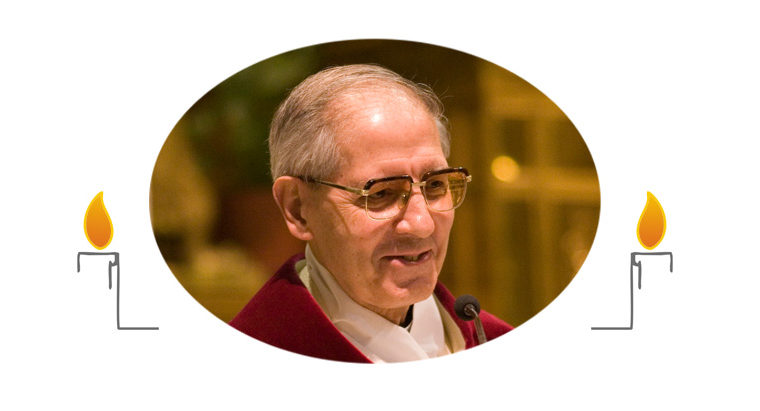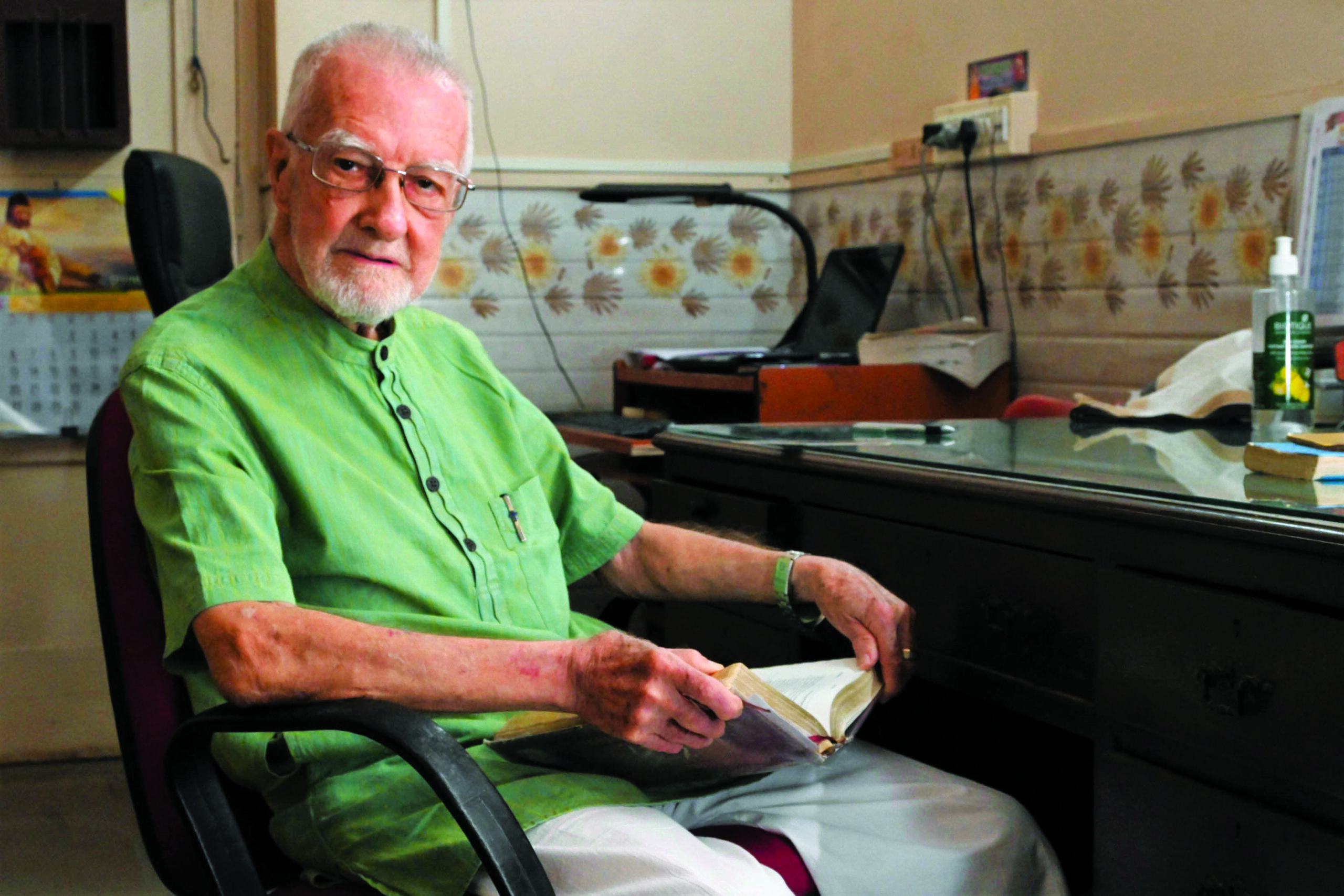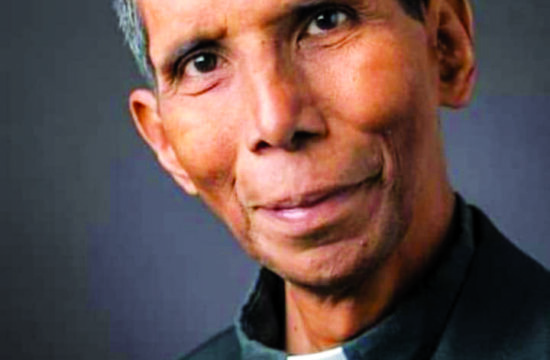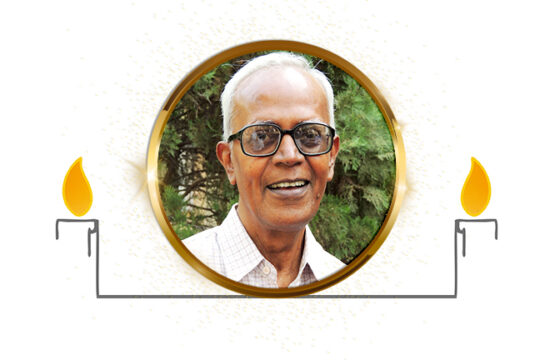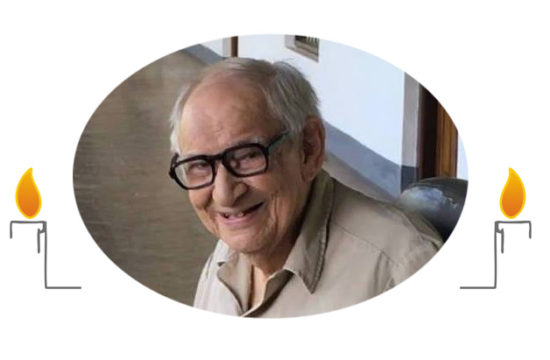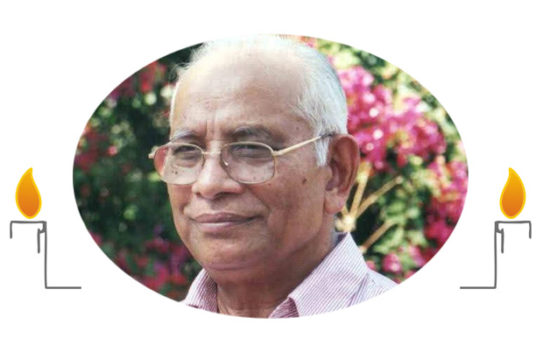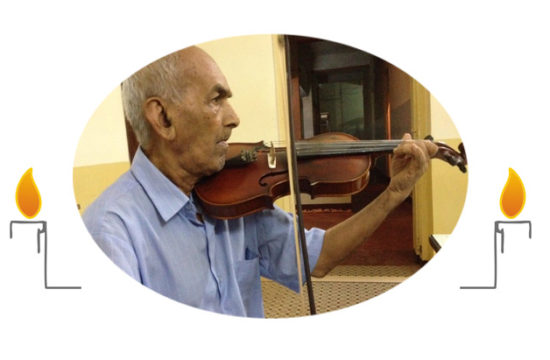In the days since Father Nicolás’s death, I have thought often about him. Even though I said goodbye to him when he left the Curia after GC 36 and said further goodbye in letters and emails, I did not realize how much I continue to miss him until news of his death came. Now, on different days and in different ways, diverse memories remind me of many facets of his wonderful humanity. Like each person God has made, Father Nicolás was unique and never-to-be-repeated. I am so grateful to have known him.
Login to read moreA flood of memories has blessed me since I first heard of Father Nicolás’s death. His humility and humour immediately came to mind (https://jcsaweb.org/jcsa_storage/2020/05/Testimony-3-James-Grummer-EN.pdf), and I have remembered so many warm and wonderful moments that I experienced with him. Sorting through the images and stories is rather overwhelming, so I would like to mention just three facets of his life and personality that stand out for me as I think about him at this particular moment. Today as I think about him, his dedication to discernment, generosity, and intellectual inquisitiveness are memorable gifts he brought to his service as Superior General, for which we can all be grateful.
Jesuits sometimes joke that discernment is fruitless since a Superior will ultimately decide no matter what I might happen to discern. Unfortunately, I think we say this because we often think of discernment as what an individual Jesuit does by himself in the quiet of his own prayer and reflection. However, discernment is really a process that involves a Superior and a spiritual director, to say nothing of friends, companions, and of course, the Lord himself. It is not an individual’s personal action. Perhaps we so easily confuse discernment and decision-making because we rarely demonstrate the discipline needed to make available the time, energy, freedom, and self-donation that are necessary for a genuine discernment. Whatever the difficulties, Father Nicolás was so committed to discernment that he insisted on doing it well. Even when the various interested parties clamoured for a decision or when a course of action was obvious, he insisted on the importance of providing the necessary conditions for discernment. For example, he never announced who a new Provincial would be, even if the decision were clear. Only after he reviewed all the information and discussion in prayer about the matter did he act.
He made clear his thoughts about discernment not long after his election, while he was reviewing the statutes of the various Conferences as GC 35 had mandated. He contrasted his experience of discernment as President of the Asia Pacific Conference with how the statutes of each Conference arranged for decisions based on a majority of votes. He suggested that voting helped people move through an agenda efficiently and quickly, but that discernment was different. It was usually slower and perhaps even awkward because of the time it took for those involved to listen, hear, and respond to the Spirit speaking in their midst. He suggested that the necessity of voting could be a sign that a course of action was not yet ready. I know from personal experience that he certainly had no difficulty making decisions, but I noticed again and again that he disciplined himself to wait until a discernment was ripe and mature lest anyone feel ignored, left behind, or unduly pressured by a dominant voice. He had learned to wait for the revelation of the Spirit to all those involved in a discernment rather than insisting on conformity to a predetermined timetable. Watching his patience, restraint, and respect for both the participants and the process in a discernment showed me how the Spirit often works through points of view that might otherwise be overlooked, ignored, or discounted. His way of proceeding was confirmed time after time, by the ease of peaceful implementation of discerned choices that resulted after taking time to listen to others and to seek the Spirit at a deeper level.
Father Nicolás was extraordinarily generous. Whenever visitors brought him gifts, he brought them to meetings so that all of us could enjoy the bounty. Carefully wrapped packages containing traditional Japanese sweets, beautiful boxes of Lebanese baklava, and all shapes and forms of chocolate from just about anywhere are only a few of the treats he wanted all of us to enjoy, even more than he enjoyed them himself. He delighted in watching us appreciate what he had received even more than the gifts themselves; and he was always thankful for what others had given him. Beside his computer screen, he always had a dish of cashews, almonds, candy, or something similar so that a colloquy could begin with some informal conviviality. He seemed on the lookout for ways to thank his collaborators who helped him in his work. However, sharing things as he did was only a surface manifestation of a much deeper generosity of spirit. He always welcomed and included those who met him by entering into their reality, striving to see and understand from their own points of view. He found each person he met interesting, never making a distinction based on rank or honour, for he firmly believed he had much to learn from everyone and their perspectives. No one was unworthy of his time or attention. Thus, he never worried about moving on to something or someone that others might consider more important. The person he was with at a particular moment was the one who was important; there was never a rush to move elsewhere. During my weekly colloquy with him, I knew he gave me his complete and undivided attention, so I eventually let go of my preoccupations about ticking off all the points of my agenda in the thirty minutes allotted me. I learned to let the clock run its course and to wait until whoever was next in line knocked on his door for admittance. For me, his generous way of proceeding with all those he met seemed to embody #22 of the Spiritual Exercises.
I clearly remember that a pile of the books he was reading always perched on a corner of his desk. Volumes by John of the Cross, Bernard Lonergan, and the wisdom of the Sufis might be there one week; Teresa of Avila, Rahner, and something that looked Japanese would follow a week or two later. Erudite tomes in at least four languages (usually concentrating on theology, spirituality, and philosophy) cycled on and off that part of his desk as he devoted himself to serious study of a broad range of topics. Besides reading books from the library, he periodically gave me lists of volumes to load onto his Kindle, which fed his interests in varied topics such as brain research, contemporary culture, and background about places he planned to visit. A further dimension of his own “ongoing formation” was a monthly meeting with a group of professors to discuss diverse topics to help expand his understanding of the world in which Jesuits work. Paradoxically, breadth and depth went together for him, providing a perspective that led him more deeply into the heart of the matter and his own love for God’s creation. Yet, in spite of all this input, the details never overwhelmed for he had a gift of easily identifying the simplicity that lies on the other side of complexity. He once held spellbound the members of Santa Clara University’s Board of Directors at an early morning breakfast meeting. He made a few observations at a rather unconscionable hour of the morning, but the impact was electric. I will never forget overhearing the awed voice of one of the leaders of a large tech company who said, “He’s the real deal.” His natural curiosity and assorted interests led him ever more deeply into ever more profound spaces.
Father Nicolás was “the real deal.” He gave himself to the ideals of Ignatian Spirituality with a generous and undivided heart that always sought the greater honour and glory of God with humility and good humour. We would all do well to imitate his example, though as he might stress, each in his own unique way. May he rest in peace!
- James Grummer, SJ
The author is the former General Assistant and currently Superior of the Jesuit Community of the Gregorian University, Rome.
Contact: jgrummer@jesuits.org


